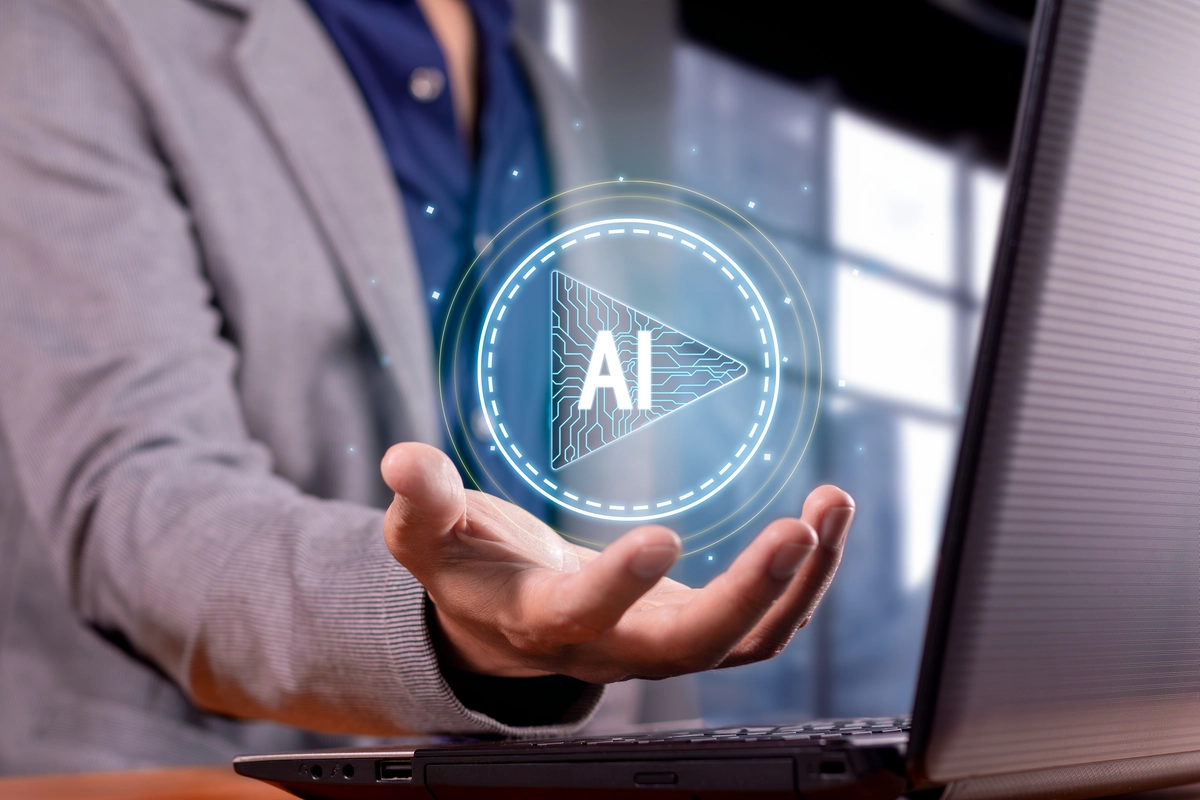How Is AI Transforming the Marketing Industry?
Moreover, AI is revolutionizing customer experience. Chatbots powered by AI are becoming ubiquitous on websites, offering instant responses to customer queries. These bots are not just programmed to respond but can learn from interactions to provide increasingly accurate answers. This means customers receive faster support, leading to higher satisfaction and retention rates.
Another game-changing aspect is AI’s role in content creation. Natural Language Processing (NLP) algorithms can generate compelling written content, such as blog posts or product descriptions, that are indistinguishable from those written by humans. This capability frees up marketers to focus on strategy while AI handles the repetitive tasks.
Furthermore, AI enables hyper-personalization at scale. By analyzing individual preferences and behaviors, AI can deliver personalized recommendations and targeted advertisements. This level of personalization enhances customer engagement and boosts conversion rates significantly.
Revolutionizing Customer Engagement: AI’s Impact on Personalized Marketing
Imagine this: You browse online for a new pair of running shoes, and suddenly, you start seeing ads for the exact models you were eyeing on different websites and social media platforms. That’s AI at work, tailoring your digital experience based on your preferences and behavior. It’s like having a personal shopper who knows your style better than you do yourself!
AI’s impact on personalized marketing is profound. It enables businesses to analyze vast amounts of data at lightning speed, allowing them to understand customer preferences, predict behavior, and create hyper-targeted marketing campaigns. By leveraging machine learning algorithms, companies can deliver the right message to the right person at the right time, maximizing relevance and engagement.
Moreover, AI-powered chatbots are transforming customer service. These virtual assistants are available 24/7, providing instant responses to inquiries and even offering personalized product recommendations. They simulate human-like interactions, making customers feel heard and valued, thus enhancing overall satisfaction and loyalty.

From Data to Decisions: AI’s Role in Shaping Marketing Strategies
Think of AI as the wizard behind the curtain, pulling together customer behaviors, market trends, and competitor insights into a cohesive narrative that marketers can act upon. It’s not just about collecting data anymore; it’s about making sense of it all in real-time. AI algorithms can detect subtle patterns in consumer behavior across multiple channels, from social media interactions to purchasing decisions, painting a comprehensive picture of your audience.
By leveraging AI, marketers can move beyond guesswork. Instead of relying on gut feelings or anecdotal evidence, they can make data-driven decisions that are backed by statistical analysis and predictive modeling. AI-powered analytics platforms can segment audiences with precision, allowing marketers to tailor their messages and offers to specific demographics or even individual preferences.
Moreover, AI doesn’t stop at analysis – it extends into execution. Automated campaigns powered by AI can optimize themselves in real-time, adjusting parameters like timing, messaging, and even budget allocation based on performance metrics. This dynamic approach ensures that marketing efforts are always finely tuned to deliver the best possible results.
In essence, AI transforms marketing from a reactive to a proactive endeavor. It empowers marketers to anticipate trends, personalize interactions, and stay ahead of the competition. Just as a skilled conductor leads an orchestra to produce harmonious music, AI orchestrates marketing strategies that resonate with target audiences, driving engagement and ultimately, conversions.
The Rise of AI-Powered Content: How Algorithms Are Redefining Creativity
AI algorithms are redefining creativity by generating content that is not only coherent but also compelling. These algorithms analyze vast amounts of data, learning from patterns and human behavior to craft content that resonates. From writing articles to composing music and even creating visual art, AI is pushing boundaries once thought to be exclusively human.
One of the most intriguing aspects of AI-powered content is its ability to adapt and improve over time. Unlike humans, algorithms can iterate endlessly, refining their output based on real-time feedback. This iterative process not only enhances the quality of content but also accelerates the pace of innovation in creative fields.
Moreover, AI is democratizing creativity by making it accessible to a broader audience. Whether you’re a seasoned professional or an aspiring artist, AI tools provide unprecedented opportunities to explore and express ideas in ways that were previously unimaginable. This accessibility fosters a culture of experimentation and collaboration, where creativity knows no bounds.
However, the integration of AI in creative processes also raises questions about authenticity and human involvement. Can algorithms truly replicate the depth of human emotion and experience? While AI can mimic creativity to a remarkable degree, the essence of artistry lies in its human context – our stories, struggles, and triumphs.
Predictive Analytics: How AI is Forecasting Consumer Behavior
Predictive analytics utilizes advanced algorithms to analyze large volumes of data and identify patterns, trends, and correlations. By crunching numbers from past consumer interactions, purchase histories, demographics, and even social media behavior, AI can predict future actions with remarkable accuracy. It’s like having a superpower to predict trends before they even become trends.
For businesses, this means more than just making educated guesses. It means making strategic decisions backed by data-driven insights. Imagine a retail store stocking up on winter jackets just before the first snowfall because predictive analytics indicated a sudden drop in temperature and increased online searches for cold weather gear. It’s not just anticipating needs; it’s meeting them proactively.
AI doesn’t stop at just predicting what consumers might buy. It can also forecast when they are most likely to buy it. By understanding seasonal trends, shopping patterns, and even individual preferences, businesses can time their marketing campaigns for maximum impact. It’s like knowing exactly when to throw a surprise party so everyone shows up at the right moment.
Moreover, predictive analytics isn’t limited to retail. It’s transforming industries across the board, from healthcare to finance to entertainment. Hospitals are using it to predict patient outcomes and allocate resources efficiently. Banks are leveraging it to detect fraud and manage risk. Streaming services are using it to recommend movies and shows tailored to your taste, sometimes even before you realize you want to watch them.

Chatbots to Conversion: Enhancing Customer Service Through AI
In today’s fast-paced digital landscape, businesses are constantly seeking innovative ways to enhance customer experience and drive conversions. One of the most revolutionary advancements in this regard is the integration of chatbots powered by artificial intelligence (AI). These intelligent assistants are not just automating responses but revolutionizing how businesses interact with their customers in real-time.
Imagine having a 24/7 customer service representative at your fingertips, ready to answer queries, provide product information, and even assist in making purchasing decisions. That’s the power of AI-driven chatbots. They simulate human conversation using natural language processing (NLP), ensuring that customers feel heard and understood, no matter the time of day or night.
What sets AI chatbots apart is their ability to learn and improve over time. Through machine learning algorithms, these bots analyze customer interactions to personalize responses and anticipate needs accurately. This not only saves time but also creates a seamless experience that customers appreciate.
But how do chatbots contribute to conversions? Think of them as virtual sales assistants. By engaging customers in meaningful conversations, they guide them through the sales funnel, addressing concerns and objections along the way. This personalized approach increases customer satisfaction and confidence in the purchasing process, ultimately boosting conversion rates.
Moreover, AI chatbots are versatile tools that can be integrated across various platforms, from websites to social media channels and messaging apps. This omni-channel presence ensures that customers can interact with brands wherever they are most comfortable, further enhancing accessibility and convenience.
The era of AI-powered chatbots represents a significant leap forward in customer service and conversion optimization. By leveraging these intelligent tools, businesses not only streamline their operations but also elevate the overall customer experience. As technology continues to evolve, the potential for chatbots to drive growth and loyalty in business is limitless.
